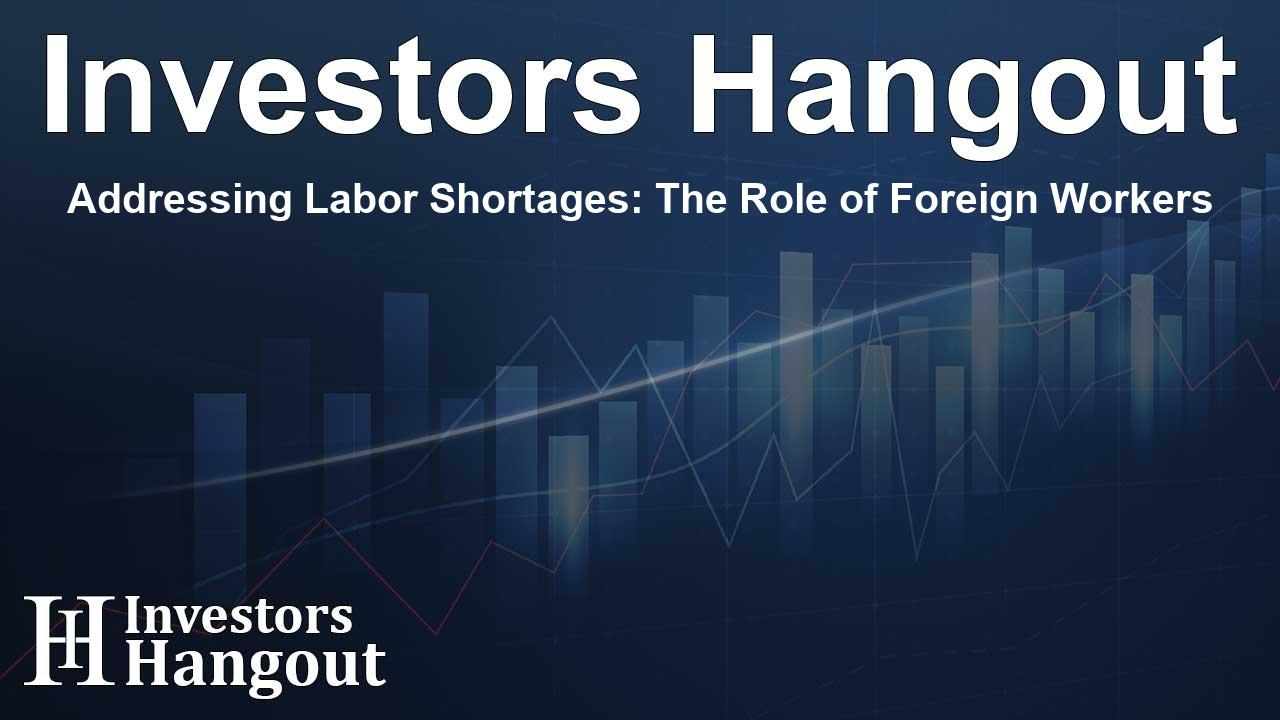Addressing Labor Shortages: The Role of Foreign Workers

Understanding Labor Shortages and Economic Growth
The world's economies face a pressing issue: insufficient labor to sustain growth and keep inflation manageable. Many policymakers recently spoke at an important gathering highlighting migration as a potential solution to this workforce gap.
Concerns About Aging Populations
In the United States, the workforce is aging, with a significant number of older workers in their jobs. Statistics show this demographic has grown substantially over the years. Notably, workers aged 75 and older represent the fastest-growing group in the labor market today.
Implications of Low Birth Rates
Declining birth rates across the globe can lead to serious labor shortages in the future. As fewer children are born, the aging workforce becomes a key concern for economic stability.
Solutions Through Migration
Migrant workers could play a vital role in alleviating these labor shortages. Countries like Japan have observed that even a small number of foreign workers can significantly contribute to their labor force growth.
Global Trends in Immigration Policy
Despite the demand for more workers, many countries are tightening their immigration policies. For instance, the United States has seen large numbers of deportations, contrasting the aforementioned need for labor.
The European Context
Europe, too, is not unscathed by these challenges. Efforts to manage migration have led to increased deportations and heightened scrutiny of immigration policies, which may unintentionally hinder economic growth.
The Economic Importance of Foreign Workers
As fewer individuals are available to contribute to production and services, central bankers are voicing concern. Leaders warn that without migration, economies could face dire circumstances, including price increases and stunted growth.
Future Workforce Projections
Projections indicate that if current trends continue, many countries will have an ageing population with fewer individuals of working age, threatening economic vitality.
Conclusion: The Need for Action
As we reflect on these discussions, the role of foreign workers becomes even more critical in the face of labor shortages. Countries that can successfully integrate migrant labor might experience more robust economies and lower inflation rates.
Frequently Asked Questions
What role do migrant workers play in the economy?
Migrant workers can help fill labor shortages, enabling production and economic growth, especially in aging populations.
Why are many countries cracking down on immigration?
Countries may impose stricter immigration policies for various reasons, including political, social, and economic considerations.
What are the long-term implications of aging workforces?
An aging workforce could lead to significant labor shortages, affecting economic growth and stability worldwide.
How do declining birth rates affect labor availability?
Lower birth rates mean fewer new workers entering the market, which can exacerbate existing labor shortages in many countries.
What can countries do to mitigate labor shortages?
Countries can look to immigration policies that allow for the integration of migrant workers as a solution to labor shortages.
About The Author
Contact Addison Perry privately here. Or send an email with ATTN: Addison Perry as the subject to contact@investorshangout.com.
About Investors Hangout
Investors Hangout is a leading online stock forum for financial discussion and learning, offering a wide range of free tools and resources. It draws in traders of all levels, who exchange market knowledge, investigate trading tactics, and keep an eye on industry developments in real time. Featuring financial articles, stock message boards, quotes, charts, company profiles, and live news updates. Through cooperative learning and a wealth of informational resources, it helps users from novices creating their first portfolios to experts honing their techniques. Join Investors Hangout today: https://investorshangout.com/
The content of this article is based on factual, publicly available information and does not represent legal, financial, or investment advice. Investors Hangout does not offer financial advice, and the author is not a licensed financial advisor. Consult a qualified advisor before making any financial or investment decisions based on this article. This article should not be considered advice to purchase, sell, or hold any securities or other investments. If any of the material provided here is inaccurate, please contact us for corrections.
